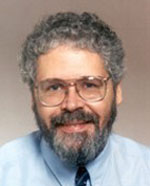Jaime Carbonell facts for kids
Quick facts for kids
Jaime Carbonell
|
|
|---|---|
 |
|
| Born | July 29, 1953 |
| Died | February 28, 2020 (aged 66) |
| Nationality | American |
| Alma mater | MIT, Yale |
| Scientific career | |
| Fields | Language Technologies, Computer Science, Machine Learning, Computational Biology |
| Institutions | Carnegie Mellon University |
| Thesis | Subjective Understanding: Computer Models of Belief Systems (1979) |
| Doctoral advisor | Roger Schank |
| Doctoral students | Yolanda Gil Michael Loren Mauldin Manuela M. Veloso |
Jaime Guillermo Carbonell (July 29, 1953 – February 28, 2020) was a very important computer scientist. He made huge contributions to how computers understand and use human language. This field is called natural language processing.
His research on machine translation helped create advanced systems. These systems could translate languages and use artificial intelligence. He studied at MIT and Yale University. Later, he became a professor at Carnegie Mellon University in 1979. He lived in Pittsburgh for the rest of his life.
Jaime Carbonell was interested in many areas of artificial intelligence. This included language technologies and machine learning. He focused on things like finding information in text and summarizing it. He also worked on making computers answer questions from text.
Contents
Jaime Carbonell's Career Journey
Jaime Carbonell was the Allen Newell Professor of Computer Science. He also led the Language Technologies Institute at Carnegie Mellon University. He joined Carnegie Mellon in 1979. He quickly became a key member of the artificial intelligence team.
He became a full professor in 1987. In 1995, he earned the Newell Chair. Then, in 2012, he became a University Professor. He was the youngest chaired professor in the School of Computer Science at CMU.
Professor Carbonell was known for being creative and productive in his research. He explored many areas of computer science. These included machine learning, data mining, and natural language processing. He wrote over 300 technical papers. He also gave more than 500 presentations. He passed away on February 28, 2020, after a long illness.
Key Research and Discoveries
Jaime Carbonell made many big scientific breakthroughs. One was the creation of MMR (maximal marginal relevance) technology. This helps summarize text and find new information in search engines. He also invented "transformational analogy." This is a way for computers to reuse and change past successful plans to solve new problems.
He also worked on machine translation that used deep knowledge. He helped start the Computational Biolinguistics Program. This program combines language technology and machine learning. It helps model and predict the 3D structures of biological molecules.
Machine Learning Leadership
Carbonell was especially famous in the field of machine learning. He organized the first four machine learning conferences. The first one was at CMU in 1981. The Language Technologies Institute (LTI), which he founded, achieved top honors.
LTI excelled in areas like machine translation and search engines. One of his students, Michael Loren Mauldin, founded Lycos, a major early search engine. LTI is still a leading institute for language technologies. It has a large team of researchers and significant funding.
Major Technical Contributions
Professor Carbonell made important technical contributions in several fields:
- MMR Technology: This helps summarize text and find new information in search results.
- Proactive Machine Learning: This helps computers learn more efficiently from different sources.
- Protein Fold Prediction: He developed methods to predict the 3D shapes of proteins.
- Machine Translation: He created better ways for computers to translate languages.
- Fraud Detection: He worked on finding unusual patterns for financial fraud.
- Case-Based Reasoning: He developed methods for computers to learn from past experiences.
Impact on Technology
Teams led by Carbonell achieved many "firsts." They created the first accurate machine translation system in 1991. They also developed the first speech-to-speech machine translation in 1992. In 1994, they launched the first large-scale web spider and search engine.
Modern machine learning, which Carbonell helped create, is now everywhere. It powers search engines, data mining, and social media. He helped edit the first books on machine learning. He also launched the machine learning conferences and co-founded the ML Journal.
Carbonell's ideas led to several successful companies. These include Lycos (web search) and Carnegie Speech (language tutoring). He was also the founding director of The Language Technology Institute. This institute is a global leader in language studies.
Awards and Honors
Jaime Carbonell received many awards for his work:
- Okawa Prize, 2015
- Best paper award for "Translingual Search," 1997
- Allen Newell endowed chair, Carnegie Mellon University, 1995
- Elected fellow of AAAI (Association for the Advancement of Artificial Intelligence), around 1990
- Computer Science teaching award, Carnegie Mellon University, 1987
- Sperry Fellowship for excellence in AI research, 1986
- Herbert Simon teaching award, 1986
- "Recognition of Service" award from the ACM, 1983–1985
- Provided testimony to the U.S. Congress on machine translation, 1990
Selected Books
- 1983. (with Ryszard S. Michalski & Tom M. Mitchell, Eds.) Machine learning: An artificial intelligence approach.
- 1986. (with Ryszard S. Michalski & Tom Mitchell, Eds.) Machine learning: An artificial intelligence approach. Vol. II.
- 1986. (with Ryszard S. Michalski & Tom Mitchell, Eds.) Machine Learning: A Guide to Current Research.
 | Misty Copeland |
 | Raven Wilkinson |
 | Debra Austin |
 | Aesha Ash |

